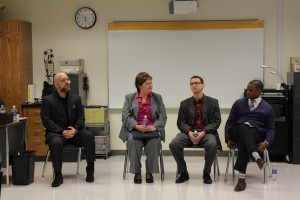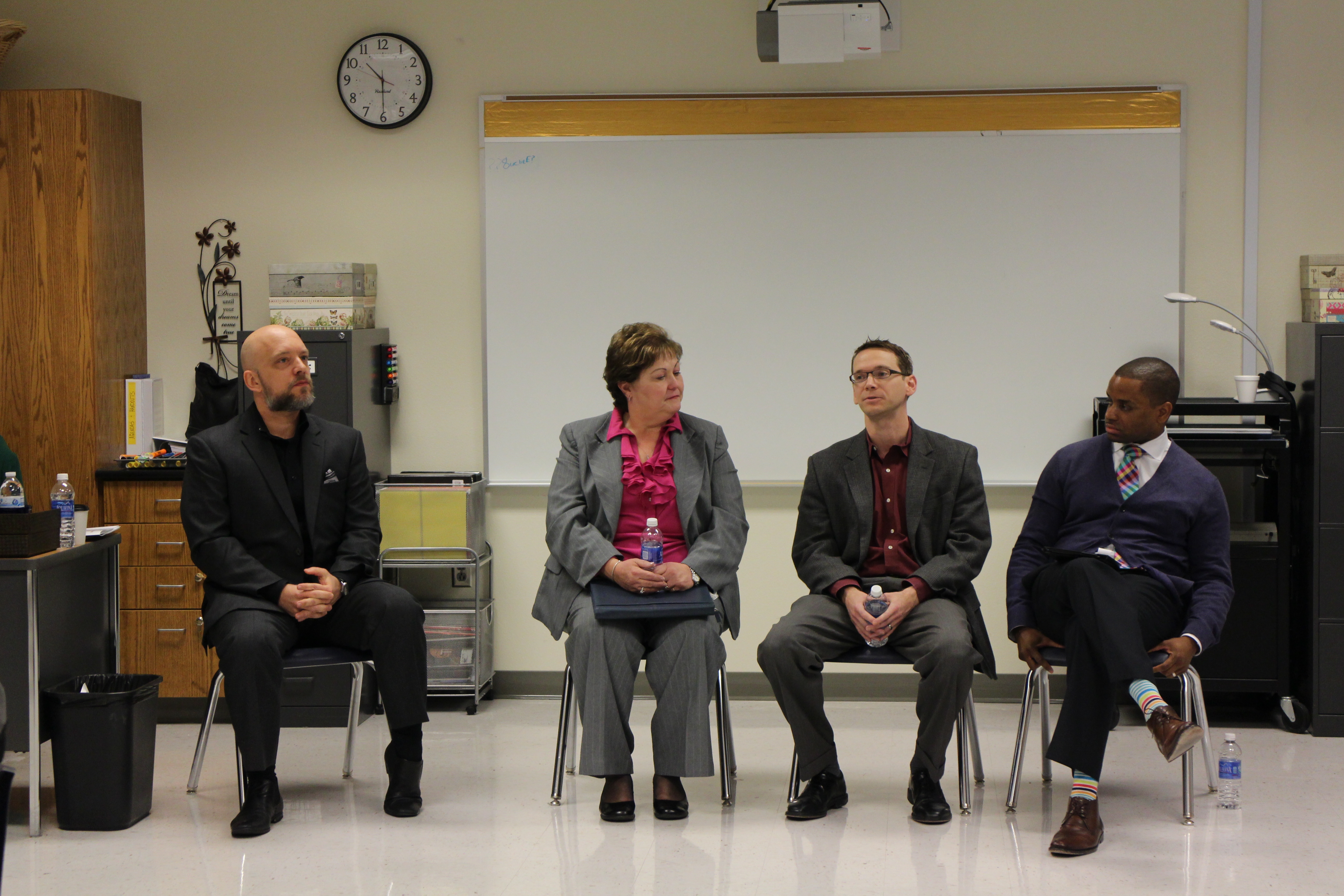
DISD Board trustee Mike Morath was featured in a Dallas Morning News Q&A over the weekend. You should read it. Morath also apparently feels the Q&A needs some clarification, which he has just issued via the miracle of e-mail. It does not mince words. Example: “Much like teachers, principals, and the superintendent, trustees should not be allowed to keep their jobs if they do not get results for kids.” [Bold typeface added by Morath, because BOLD, DAMNIT!]
As always, read with your eyes:
Home Rule and the Children of Dallas
Less than one third of Dallas students can properly read and write. Clearly, major changes are necessary.
Given this need for change, last week, a group called Support Our Public Schools announced their intention to gather signatures to ask the Dallas ISD board of trustees to launch a commission to consider becoming a Home Rule school district.
This initiative has the potential of being a truly game changing reform of our system. The law allows Home Rule school districts to do two things: (1) seek exemptions from a variety of state mandates, and (2) adopt a new governance structure.
My interest in Home Rule stems from three years of experience serving on the board of trustees. In the last two decades, a majority of trustees on the Dallas school board have consistently tried to make progress. And some progress has been made. But there is a fundamental problem with our system of governance. I’ve come to the realization that there is no real accountability to children for board members. Trustees are accountable to us, the voters. But such a tiny number of us vote that is easy for adult special interests to triumph over the need to improve outcomes for children.
This isn’t right. Much like teachers, principals, and the superintendent, trustees should not be allowed to keep their jobs if they do not get results for kids.
Home Rule will give the people of our city a chance to change this dynamic for the first time ever, by changing the structure of the school board. This kind of change is different from individual policies enacted by a given superintendent, because it will change the incentives of those above the superintendent who are truly in charge.
Because of my role as trustee, I’ve had the unique opportunity to think about these issues for a long time. And I have many ideas on possible structural improvements to our system. These ideas and more deserve careful deliberation before we as a community decide on any one or combination of options. The key is to recognize that we are not forced to accept the status quo. Which is both liberating and frightening. But the status quo is not acceptable for our children, so we should be both thoughtfully and courageously willing to engage in debate. Given that, here are a few possible governance changes:
- Switch to 2- or 4- Year Terms. One-third of trustees are up for election every year, meaning one-third are at least as focused on being re-elected as they are on advancing thoughtful policies for children. Switching to 2-year terms or 4-year terms (staggered every two years), will likely reduce the negative impacts of continuous campaigning.
- Provide for Semi-Autonomous Local Boards. Beyond the overall board for the district, we could develop a system that created boards governing individual campuses, whole feeder patterns, or whole areas. Subject to achieving certain outcomes for students, and while being funded equitably from the district, these boards could operate their campuses with high levels of autonomy from the overall district, potentially increasing neighborhood cohesion with the requirement to raise student outcomes. This kind of provision would likely accommodate the needs of those promoting White Rock ISD while keeping the district’s tax base together.
- Adopt a Recall Process. Unlike other elected officials, school board members are not subject to recall. Adopting this kind of provision could help put ongoing pressure on trustees to remain focused on outcomes.
- Move to November Elections. Turnout in May rarely tops 5%. Turnout in November of even years is regularly above 30%. If we want to encourage more citizens to have a voice, this is an option.
- Adopt a Performance Requirement. We could adopt a mechanism that would require all trustees to stand for re-election if after any 3-year period student outcomes didn’t grow more in Dallas ISD than they did on average in the state. This could help keep trustees focused on improving outcomes for our kids rather than focusing on how adults are affected.
- Appoint Some or All Trustees. The DART board is appointed, and is a taxing entity. The DFW board is appointed, and has a good mix of skill sets represented. Dozens of cities around the country have school boards appointed by mixtures of nominating commissions, governors, county or city councils, and/or mayors. And many of these have experienced tremendous gains in student outcomes – notably, Boston, which is one of the highest performing urban school systems in the country. Of course, within this topic, there are dozens of potential variations. Under each, we would be wise to require appropriately diverse representation in any appointments. And counter-intuitively, appointing trustees may actually result in more voters having an impact on Dallas ISD given the number of votes cast for the appointing officials in comparison to existing school board elections. Appointments theoretically allow for a better mix of skill sets on the board, which could lead to better outcomes for our kids. But this approach obviously raises basic questions about how local democracy should work, and will need much discussion.
- Craft a Fail Safe. Given the potential for unintended consequences, it seems critical that any change in governance adopted as part of Home Rule be accompanied by a mechanism that would require voters to re-approve it after a certain number of years. Failing any re-approval, the entire district could revert back to the current structure.
These are just a few ideas. There are more. They deserve to be discussed, debated, attacked, and/or supported as part of the democratic process of re-imagining what Dallas ISD could be. I hope the citizens of our great city will participate in this great debate. And I hope my fellow trustees will help lead that debate.
I think it is also important to clear up a few misconceptions related to this Home Rule discussion, given recent news stories on the topic.
Specifically, there have been a variety of questions about how the non-profit group Support Our Public Schools came about. These questions are of course irrelevant to the broader issue of how we should better organize Dallas ISD to educate our children. But they are good questions regardless. To provide some clarity: I do not serve on the board of Support Our Public Schools, and as a result, I have nothing to do with the decisions they make. But I am an avid supporter of their organization. I first learned about Home Rule over a year ago, and I brought the law to the attention of several of the eventual founders of Support Our Public Schools. I even encouraged them to form the organization. They decided it was a good idea, and did. They’ve regularly updated me on their progress, and I’ve regularly tried to provide any help they requested. For example, a couple months after they got started, I arranged for an introduction with the Mayor so they could brief him on the law and their organization. Similarly, in February I introduced the organization to Hillcrest alumnus John Arnold & his wife Laura’s Action Now Initiative, and they decided to support the organization as well. While Support Our Public Schools isn’t pushing any specific outcomes in this process, they are working hard to bring many different stakeholders together for a conversation on a very complex topic.
If we come together as a community and fully dedicate ourselves to meeting the needs of our children, I’m confident we can substantially improve the system that is Dallas ISD.




